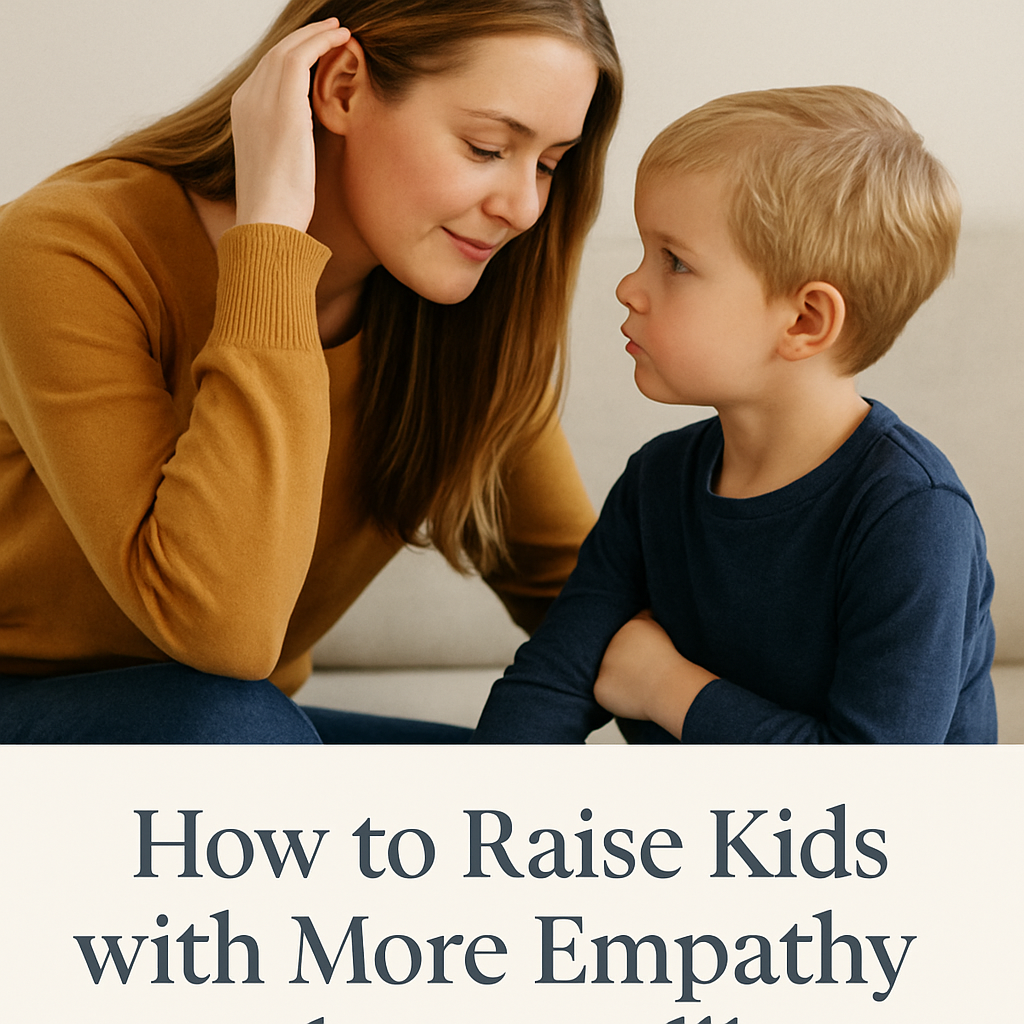Raising kind, empathetic, and emotionally intelligent children is one of the greatest goals any parent or caregiver can have. But in the rush of daily life, stress can lead to raised voices, impatience, and reactions we later regret. Thankfully, parenting without yelling is not only possible—it’s deeply effective.
This article will guide you through practical strategies to help raise children with more empathy, connection, and cooperation, while reducing the need for yelling or harsh discipline.
Why Yelling Doesn’t Work Long-Term
Yelling might stop behavior in the moment, but it usually doesn’t teach the right lessons.
- It creates fear, not understanding.
- Kids may listen temporarily but are less likely to internalize the message.
- Over time, yelling damages the parent-child connection, leading to resentment or withdrawal.
When children feel safe and connected, they are naturally more cooperative and open to learning.
The Power of Empathy in Parenting
Empathy is the ability to understand and share another person’s feelings. Teaching empathy starts with modeling it.
- When parents show empathy, children learn empathy.
- A child who feels heard is more likely to listen in return.
Step 1: Stay Calm (Even When It’s Hard)
Practical Techniques to Stay Calm:
- Pause before reacting. Take three deep breaths.
- Lower your voice instead of raising it. It signals seriousness without fear.
- Step away if needed. Place the child somewhere safe and take a few moments alone.
Mindset Shift:
- See misbehavior as communication, not defiance.
- Ask yourself, “What is my child trying to tell me through this behavior?”
Step 2: Connect Before Correct
Example:
If your child throws toys, instead of yelling:
- Get down to their eye level.
- Say, “I see you’re upset. Throwing toys isn’t safe. Let’s figure this out together.”
When children feel understood, they become more open to listening and learning.
Step 3: Use Clear, Calm Boundaries
Empathy doesn’t mean letting everything slide.
- Be clear about limits: “It’s okay to feel angry. It’s not okay to hit.”
- Offer alternatives: “You can stomp your feet or squeeze this pillow instead.”
Step 4: Teach, Don’t Punish
Children often misbehave because they don’t yet have the skills to manage big feelings.
- Teach them how to express frustration: “Use your words. Say, ‘I’m mad!’”
- Practice solutions together: “Next time, what can you do instead of throwing?”
Step 5: Repair After You Slip
No parent is perfect. If you do end up yelling:
- Apologize sincerely: “I was feeling really frustrated and I yelled. I’m sorry. Let’s try again.”
- This models emotional repair and shows that everyone makes mistakes.
Step 6: Foster Empathy Daily
Simple Ways to Teach Empathy:
- Talk about feelings regularly. Name your own emotions: “I’m feeling tired today.”
- Name your child’s feelings: “You look sad because your toy broke.”
- Read books about emotions and discuss how characters feel.
- Model kindness by helping others and letting your child see.
Step 7: Create Predictable Routines
Much misbehavior happens when children feel anxious or out of control. Routines help:
- Reduce power struggles.
- Offer security and predictability.
- Make transitions easier (like bedtime or getting ready for school).
Step 8: Offer Choices When Possible
Giving children small choices reduces conflict.
- “Do you want to brush your teeth first or put on pajamas first?”
- “Would you like the red cup or the blue cup?”
This fosters autonomy while keeping boundaries intact.
Step 9: Focus on What You Want, Not What You Don’t
- Instead of “Stop yelling!”, try “Use a calm voice like this.”
- Instead of “Don’t throw!”, say “Hands are for building.”
This shifts the focus from punishment to guidance.
Step 10: Take Care of Yourself Too
- You can’t pour from an empty cup.
- Rest when you can.
- Lean on friends, family, or support groups.
- Prioritize small moments of joy and relaxation for yourself.
Final Thoughts: Leading with Love
Raising kids with empathy and without yelling isn’t about being a perfect parent. It’s about showing up with patience, love, and a willingness to grow alongside your child.
Every day is an opportunity to practice—not perfection, but presence. When your child feels seen, heard, and loved, their natural empathy and cooperation blossom.
